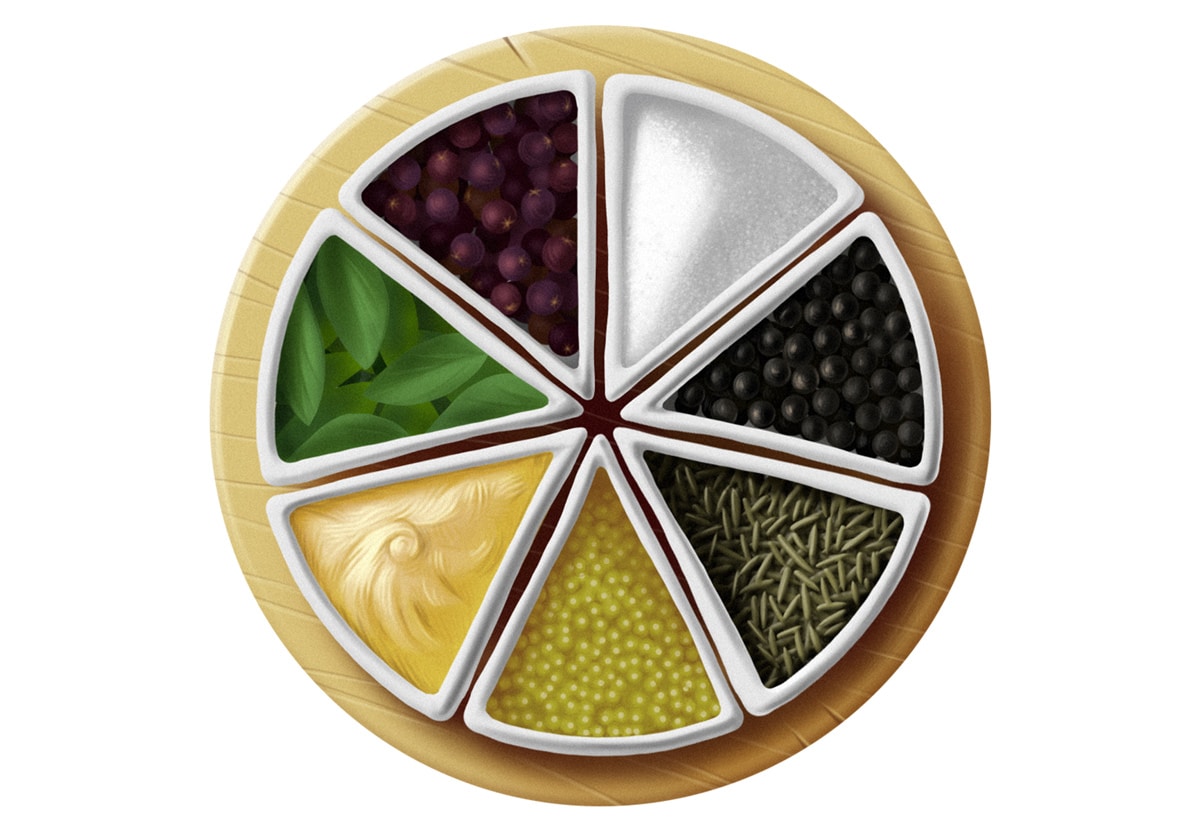
Turmeric: you might know it as that delicious yellow spice in curry powder, but it’s also been promoted as a cure for everything from general inflammation to diabetes to cancer. In fact, curcumin (the major antioxidant in turmeric) does have some very interesting anti-inflammatory properties and it might be a helpful supplement, particularly for people with inflammatory diseases like osteoarthritis that they’re having a hard time controlling with diet and lifestyle. But so far, there’s no real evidence that turmeric as a food has the same benefits.
Curcumin vs. Turmeric
When it comes to studies on turmeric, it’s important to distinguish between two different things:
- Turmeric: a spice made from the root Curcuma longa.
- Curcumin: the “active ingredient” of turmeric. It’s the antioxidant that gives curcumin its bright yellow color. About 5% of the weight of the spice turmeric is curcumin. There's also a little bit of curcumin in ginger.
This is important, because studies on purified curcumin don't represent the results you’d get from eating turmeric.
A lot of breathless reporting on the anti-cancer and anti-inflammatory properties of turmeric is basically takes the results from studies on curcumin supplements and applies them to turmeric that you put on your food. That doesn’t make sense, since the amount of curcumin in a food-sized dose is much smaller. So the question of turmeric/curcumin really has two parts:
- How does it work as a supplement?
- How does it work as a whole food, in whole-food amounts?
As it turns out, curcumin and possibly turmeric in purified supplemental form shows some interesting promise for fighting inflammation and potentially treating the symptoms of chronic diseases like diabetes and arthritis. But as a whole food, there’s not a lot of evidence that turmeric in dietary amounts has the same benefit.
Turmeric or Curcumin as a Purified Supplement
Supplemental Curcumin

Supplemental curcumin is anti-inflammatory and has some interesting anti-cancer properties.
There are a bunch of test-tube and animal studies on overall anti-inflammatory and antioxidant benefits. The pathways of inflammation and oxidative stress that curcumin affects are involved in all kinds of chronic diseases, including cancer, cardiovascular disease, neurodegenerative diseases (like Alzheimer’s) and inflammatory GI diseases (like Inflammatory Bowel Disease). So the antioxidant effects of curcumin supplements might have a beneficial effect on those diseases, but the studies, particularly for cancer, are mostly in test tubes and animals, not people.
There’s also some evidence in humans for reducing inflammation, pain, and a few markers of oxidation and oxidative stress. This study found that 1500mg/day of turmeric was effective for osteoarthritis pain and stiffness. This study found that they can help people with Type 2 Diabetes control blood sugar.
That’s not nothing! Particularly, it suggests that curcumin could be a good “band-aid” supplement for people who need help controlling their inflammation when they can’t do it with diet and lifestyle. The Paleo approach to inflammation is mostly about fixing the underlying diet and lifestyle, not putting a band-aid on it with supplements, but nobody’s perfect and sometimes you do have to compromise on diet and lifestyle factors. During a particularly stressful time, or a time when for whatever reason you have to eat non-Paleo food, curcumin might be helpful as an anti-inflammatory.
But to make those supplements effective, researchers typically have to modify the actual curcumin. In humans, curcumin isn’t very well-absorbed. There are a few ways to fix that, including modifying the structure of the curcumin molecule, or taking it with an absorption enhancer. But the need either modify the curcumin or take it with something else is a clue that just eating whole-food turmeric with regular old curcumin might not be so beneficial. On the other hand, one of those absorption enhancers is piperine from black pepper, which many people probably do eat with turmeric in recipes. So what about studies in actual turmeric?
Supplemental Turmeric
Studies on supplemental turmeric (not just the curcumin, but the whole spice, ground up or freeze-dried or otherwise made into a pill) are a little thinner on the ground, but there are a few to back up the benefits of curcumin.
- This study found that a turmeric supplement helped with joint inflammation in the same way that curcumin supplements did, but to make the supplement, the researchers took all the essential oils out of the turmeric powder – this wasn’t a whole food.
- This study found that a combination of supplemental garlic extract and turmeric extract helped improve vascular health in rats.
On the other hand, turmeric as a whole food just doesn’t have the evidence to back it up as a magic anti-inflammatory.
Turmeric As a Whole Food
So far, it’s pretty clear that curcumin is a reasonably promising anti-inflammatory supplement that might have benefits for a lot of different chronic lifestyle diseases. There’s less evidence for plain old turmeric supplements, but it’s still interesting. But there’s almost no evidence that these benefits apply to turmeric that you put in your curry.
Linked above are several recent reviews of literature on turmeric and curcumin. Many of them start out with a historical paragraph about the use of turmeric in traditional medicine, and then segue neatly into studies on isolated curcumin extracts. Don’t be tempted to read this as an argument that turmeric in traditional medicine has any proven benefit, or that turmeric in foods has the same effect as curcumin supplements.
The studies almost never cite any actual experiments with dietary turmeric on human subjects, much less proof that dietary turmeric cures any disease. This review found that curcumin supplements helped diabetics control their blood sugar, but the one study on an actual food-level dose of turmeric in humans showed no effect. Maybe in the future, more studies on turmeric consumption will show a clear benefit, but right now, it’s just not there.
Summing it Up
Curcumin supplements may have some interesting anti-inflammatory health benefits (although it’s important not to rely only on test-tube studies, animal studies). For people interested in reducing inflammation, it might be a useful supplement, especially in the short term as a kind of emergency inflammation management band-aid (say for example, if you’re a new parent and sleep deprived and there’s not much you can do about it). But turmeric has less curcumin than curcumin supplements, and the curcumin is in a less bioavailable form. So far, the research doesn’t suggest that turmeric in whole-foods amounts has the kind of anti-inflammatory benefits of curcumin as a supplement.
Turmeric is a perfectly healthy food. There’s nothing at all wrong with it, and no reason not to eat it. Like other spices, it may protect health by preventing oxidation of fats in food and cooking oils, which would be a health benefit regardless of its antioxidant abilities in your body. But if you’re after the health benefits of curcumin, the available evidence doesn’t support the idea that a big plate of curry is as good as a supplement.





Leave a Reply